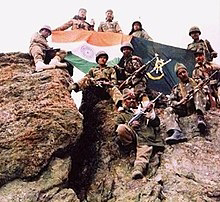the 1999 : Kargil War

Title: The 1999 Kargil War: A Landmark Conflict in South Asian History Introduction: The Kargil War of 1999 stands as a poignant chapter in the annals of Indo-Pakistani conflicts, altering the geopolitical landscape of South Asia and leaving an indelible mark on the collective consciousness of both nations. Spanning from May to July 1999, this conflict erupted in the Kargil district of Indian-administered Jammu and Kashmir, escalating tensions between India and Pakistan to the brink of a full-scale war. The intricate dynamics of this conflict, its origins, military strategies, diplomatic maneuvers, and eventual resolution provide crucial insights into the complex relationship between the two nuclear-armed neighbors. Ayushman Origins and Context: The roots of the Kargil conflict can be traced back to the longstanding territorial dispute over the region of Kashmir, which has been a contentious issue between India and Pakistan since their independence in 1947. The Kargil ...

